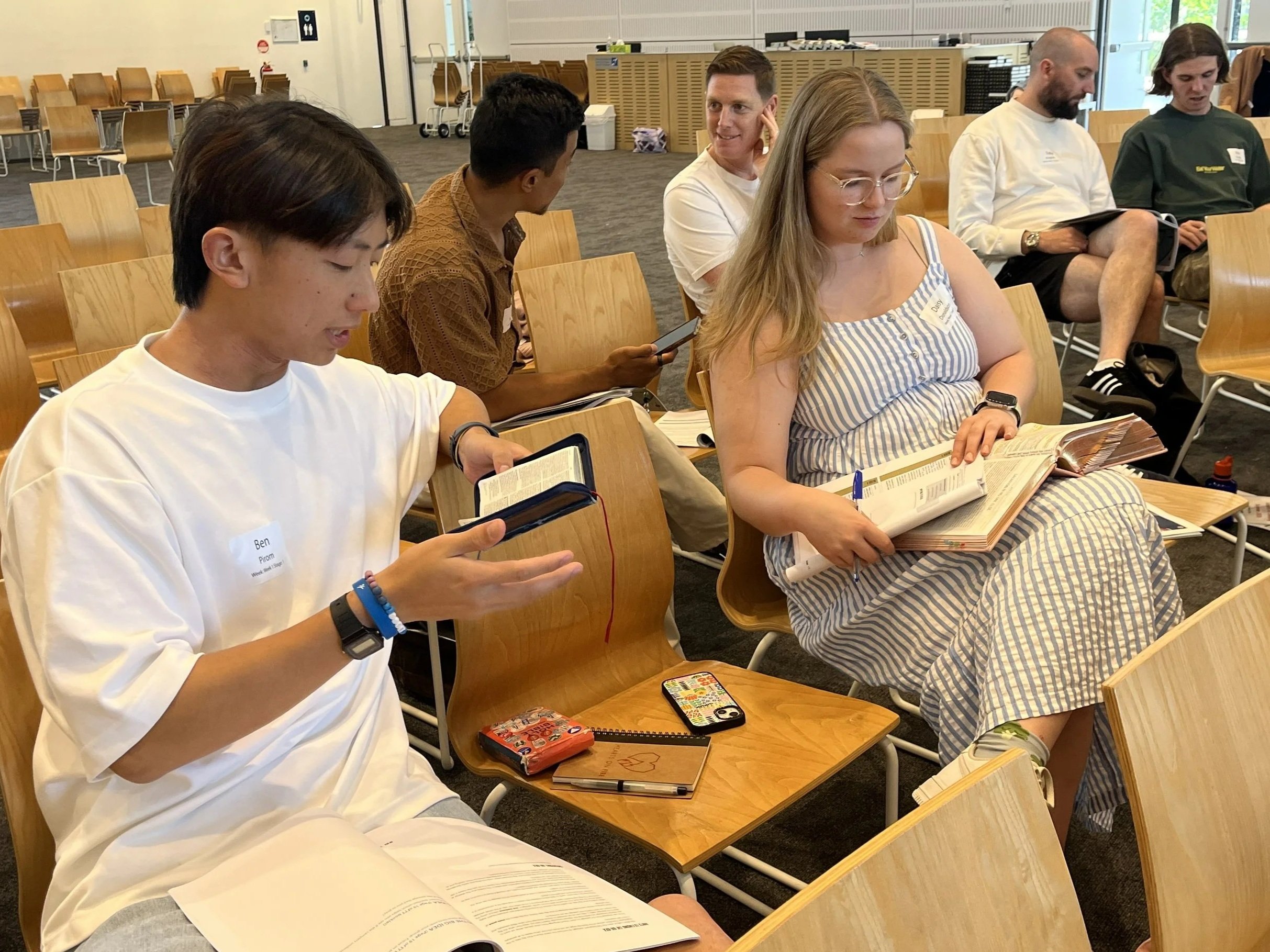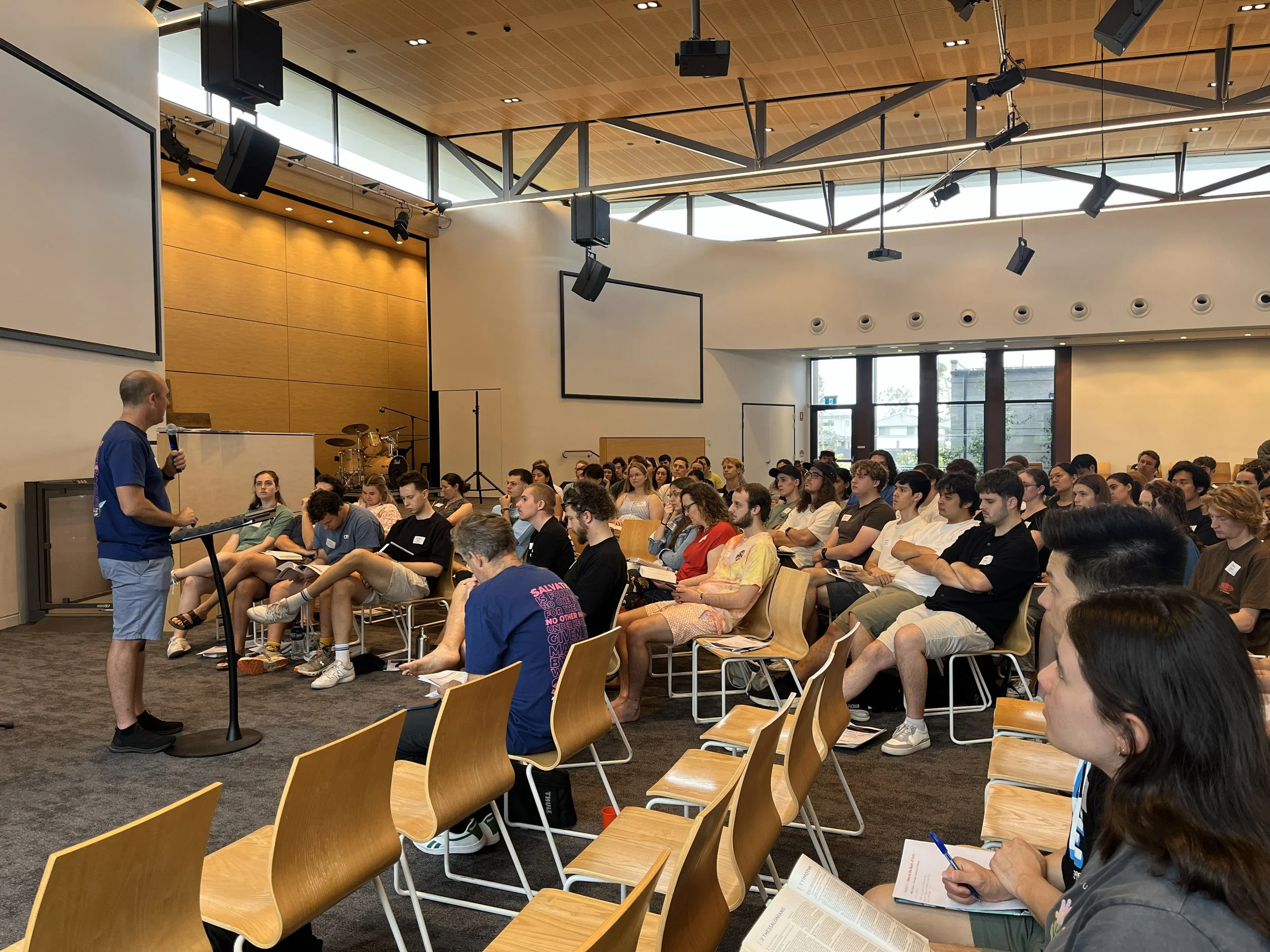
Learning God at Youthworks
Our Christian brothers and sisters in the global south often humble me with their enthusiasm and their deep devotion to Christ. At the same time, they often lack the opportunity to study the Bible deeply and so to grow in the knowledge of God’s word.
How different is our situation. We have the facilities for study and for training in ministry at places like Youthworks College, which allows those who minister to and train youth and children to deepen their knowledge of God through his word, which is essential for the task.

Making the most of large and small group learning
Think back to the best training experience you’ve ever had. Was it in a big room buzzing with energy and ideas? Or was it in a small circle where you had time to talk, try, and get feedback?
The size of the group strongly shapes what is possible, what works well, and what simply won’t land. Great trainers don’t fight against the size of the room—they design intentionally for it. Let’s explore the differences between training various sized groups and how to make the most of these differences.

Adapting ministry training to age and experience
The most effective ministry training pays attention not only to content but also to the age and experience level of the leaders you are equipping. Different groups learn differently, have different expectations, and respond differently.
When we recognise these differences, we can design training that genuinely serves every leader in the room—whether they are 16 and just starting out, 45 with decades of church experience or 60 and stepping into children’s ministry for the first time.

Navigating the social media ban
From 10 December 2025, the social media landscape in Australia is changing for young people, with the government introducing new restrictions that represent a significant cultural shift in how young people remain socially connected with each other.
Here are some suggestions for ministry workers to plan for and prepare to disciple young people, their leaders and families through these changes.

Becoming a reflective practitioner: Growing in the habit of reflection
At its heart, reflective practice is the disciplined habit of thinking carefully about our experiences, attitudes, and actions in order to learn, grow, adapt, and change.
Reflective practice is not just a professional tool. For the Christian teacher or ministry leader, it is a discipline — one that helps us listen to God, learn from experience, and grow in wisdom.

SRE Good News - November 2025
Check out all the SRE Good News from the November edition of our SRE Impact Newsletter.

Christmas gift ideas for your SRE students
The end of the year is fast approaching – and many SRE teachers are thinking about what small gift can help families remember Jesus at Christmas time.
Here is a selection of Christmas booklets and items that are approved for use in SRE and would make great gifts for SRE students.

The three non-negotiables of children’s ministry
What are the most important things in your children’s ministry? If you had to strip away everything else, what are the indispensable elements of a faithful ministry to children? And are these the things that are given the most time and attention?
Here’s what I believe are the top three non-negotiables of any faithful children’s ministry.

The faithful examples of two SRE teachers
As another year of SRE draws to a close, I’ve been particularly encouraged by two SRE teachers whose stories give us a glimpse into the ministry that happens in our public schools. Their examples remind us that God delights to use ordinary faithfulness for his purposes.

Three things I wish I’d known about training children’s ministry leaders
Running an after-school kids program was definitely a highlight of my first ministry role. A growing leadership team was also a joy but working out how to train and support them was an area I never felt confident in. Here are three things I wish I’d known back then about training children’s ministry leaders.

Walk worthily of your calling according to Ephesians
The modern notion of ‘calling’ is essentially an individualistic and self-focused concept concerned with self-realisation and self-fulfilment.
To consider divine calling as each person’s unique way of life or career is quite problematic, at least from Paul’s perspective. In Ephesians the concept of ‘calling’ cannot be more different.

Leadership Skills: three ways to listen more deeply
One of the most valuable tools in a ministry team leader’s toolbox isn’t just the ability to speak clearly—it’s the ability to listen deeply. Because when leaders fail to listen, communication breaks down. And when communication breaks down, teams struggle.
Deep listening is crucial for fostering relationships, building rapport, and establishing trust. It’s a key tool that can strengthen your leadership and communication in ministry. I’d like to share three practical ways we can listen more deeply.

SRE Good News - September 2025
Check out all the SRE Good News from the September edition of our SRE Impact Newsletter.

Perfectly known, perfectly loved
Along with the struggle to be authentic, post-modern culture and young people are suspicious of institutions and people who have any kind of power, which can be used to silence or oppress minorities and stop them expressing their authentic selves. I am sure many of you have had the experience of teaching about these issues and sensing that the listeners think you are being judgmental and oppressive.

More than meets the eye: reading the Psalms with young people
The Psalms teach us how to pray when all is as it should be (psalms of orientation), when life is hard (psalms of disorientation), and when we find ourselves on the other side of trouble (psalms of reorientation).
As I have taught the Psalms to young people and adults working with young people, I have become convinced that the Psalms are so much more than an invitation for us to speak honestly to God.

Kids’ holiday club gems
Kids’ Holiday Clubs are often where it all comes together for children. Over a few days, they grasp precious gospel truths and form deep connections with their local church.
Here are a few gems and resources shared by various churches - maybe these could help you with your next holiday club?

Neurodiversity: When Friday night feels like a shaken can of soft drink
For many neurodivergent young people, life can sometimes be overwhelming, unpredictable, and hard to contain the strong feelings bubbling inside. Certain situations can lead to an eventual explosion that’s often misinterpreted as simply disruptive behaviour.
So how can leaders in youth and kids’ ministry lead more thoughtfully and inclusively?

Your story – A visionary Australian research project
Your Story is a visionary research project featuring stories from over 400 Australian young people. The project explores questions around who and what has, and is, shaping their faith in their childhood, adolescence, and the present, by listening to young people narrate their faith story.
Here are four key findings from this research, and their implications for ministry.

Five strategies to cultivate a culture of church-parent partnership
The childhood years are foundational for a young person’s spiritual development. Yet children’s ministry is too often carried out in isolation from the families to whom these children belong.
When the church and home are aligned in purpose, vision, and strategy the discipleship and spiritual formation of children flourish. So, what does meaningful partnership between the church and the home look like—both theologically and practically?

Too comfortable for Christ
When life feels full and comfortable, why would anyone think they need Jesus? The “I’m fine, thanks” fallacy is one I’ve encountered time and time again. Young people often don’t perceive their need for Jesus because life feels good, and they don’t see themselves as "bad people."
Here are three approaches to help young people see their need for Jesus, even when they don’t feel it.
